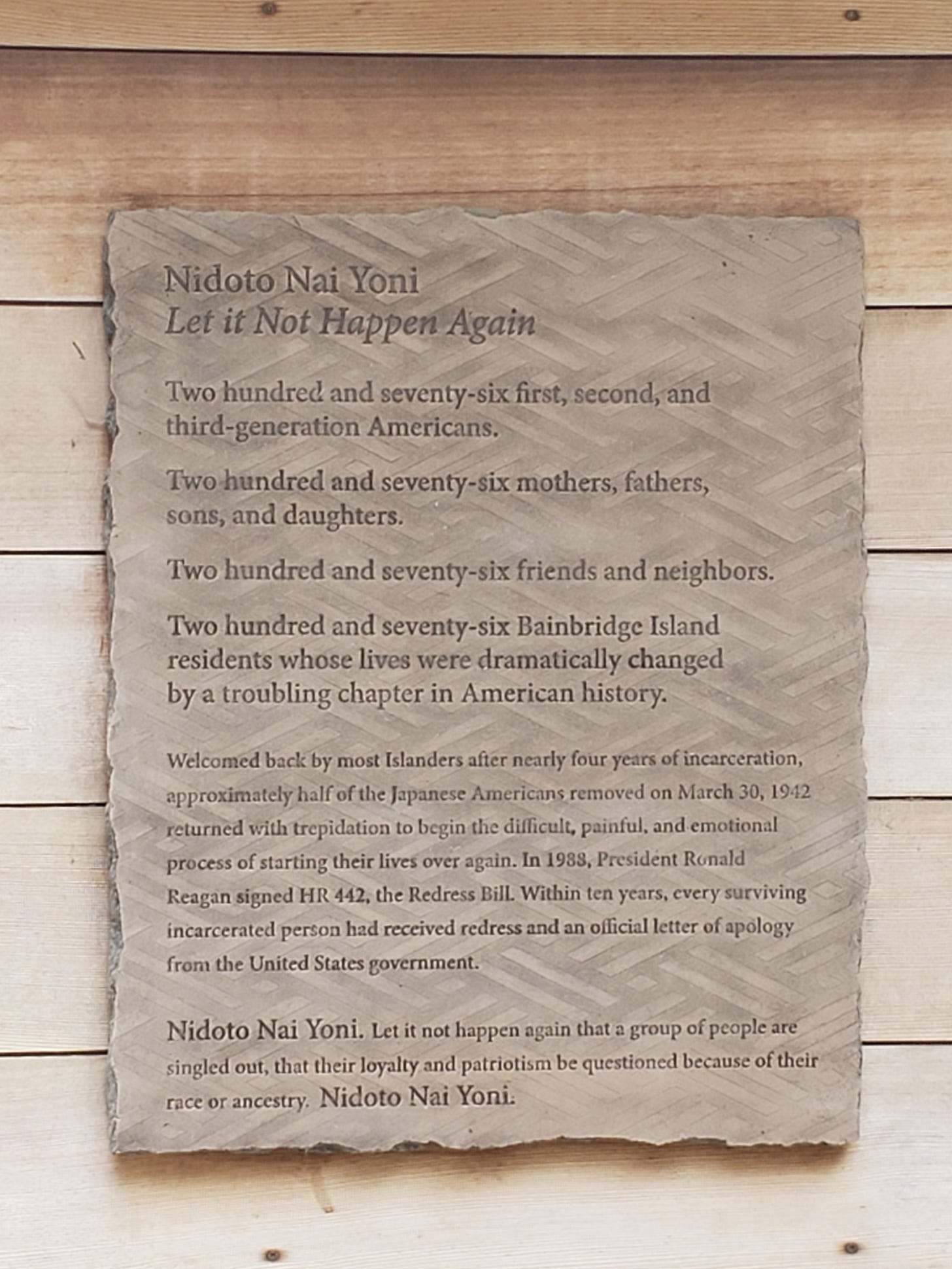Nidoto Nai Yoni. Let it not happen again that a group of people are singled out, that their loyalty and patriotism be questioned because of their race or ancestry. Nidoto Nai Yoni
- Bainbridge Island Japanese-American Exclusion Memorial
Understanding history is an important aspect of cultivating justice. We need to understand where we’ve been in order to determine how to move forward. I’ve been wanting to do some kind of history…something in these essays, and although I currently teach middle school history, I’m not a historian by training (I’m technically a generalist by training and am certified to teach any subject K-8). I do however love children’s literature and have a background in reading instruction, including children’s literature. I made the connection that that’s how I can share lesser known history - through children’s books! I’ll start with highlighting some books from my personal collection. I’m a firm believer that children’s literature is not just for children - it’s for everyone - sharing stories without being too long. That said, here’s the first entry in this new “History Highlight” series: Baseball Saved Us.
Historical Context
As a result of President Franklin D. Roosevelt’s Executive Order 9066, people of Japanese ancestry living along the west coast of the United States were forcibly removed from their homes and moved to incarceration camps for the remainder of World War II. The Executive Order came after the bombing of Pearl Harbor on December 7, 1941, and the United States’ entry into World War II. Japanese-Americans living on Bainbridge Island, WA, were among the first group to receive evacuation orders and were given 6-days notice. On March 30, 1942, 227 Islanders were forced to leave, and 276 Islanders were removed in total. The Bainbridge Island Japanese Exclusion Memorial, part of the National Park Service, recently hosted an honoring event of the 83rd anniversary of this day. In 1988, President Ronald Reagan signed HR 442, which acknowledged the injustice of the government’s actions towards Japanese-Americans during World War II, offered a formal apology, and provided reparations to the survivors.
Baseball Saved Us
Baseball Saved Us is written by Ken Mochizuki and illustrated by Dom Lee. In the book, Shorty and his family are among thousands of Japanese-Americans relocated from their homes to an incarceration camp. Shorty’s dad decides to create a baseball field in the Camp using spare resources that were available. The book describes the baseball league’s season alongside descriptions of the barbed wire fences and guards with guns that were always watching them.
While fiction, it is based on true stories of baseball leagues formed in the incarceration camps and the ways the imprisoned Japanese-Americans honored their own dignity in the midst of blatant racism. In fact during the fall of 2024, players from the Japanese American League played a tribute game at Manzanar in California, one of the 10 incarceration camps for Japanese-Americans during World War II, and the camp where Bainbridge Islanders were sent initially. (Most of the incarcerated Islanders were later relocated to Minidoka in Idaho.) This article, including an embedded video, documents the tribute game: Japanese Americans play historic baseball games at prison camp to recall a pastime — and a lifeline.
What other books about Japanese-American incarceration do you recommend (children’s books or otherwise)? I’ll add some more in the comments as well.
In case you missed it - related essays from Cultivating Justice:










Here's a list I received from a subscriber:
Books:
_The Buddha in the Attic_, by Julie Otsuka
_Snow Falling on Cedars_, by David Guterson (also made into a movie)
_Hotel on the Corner of Bitter and Sweet_, by Jamie Ford
_China Dolls_, by Lisa See (about two friends, a Chinese-American and a Japanese-American, as World War II starts, and how they are treated differently)
_Under the Blood Red Sun_, by Graham Salisbury (also made into a movie)
_Farewell to Manzanar_, by Jeanne Wakatsuki Houston (both a memoir and a movie)
Other Movies (besides the three mentioned in my book list above):
- Come See the Paradise
- All We Could Carry
- The Magic of Ordinary Days (about a Colorado internment camp)
- Camp Amache (set in a Colorado internment camp)
- They Called Us Enemy (graphic novel) by George Takei - yes the Star Trek actor!
- Paper Wishes by Lois Sepahban
- The Bracelet by Yoshiko Uchida